
Pin on Marder II Sd.Kfz. 131
Marder III was the name for a series of World War II German tank destroyers. They mounted either the modified ex-Soviet 76.2 mm F-22 Model 1936 divisional field gun, or the German 7.5 cm PaK 40, in an open-topped fighting compartment on top of the chassis of the Czechoslovakian Panzer 38 (t).
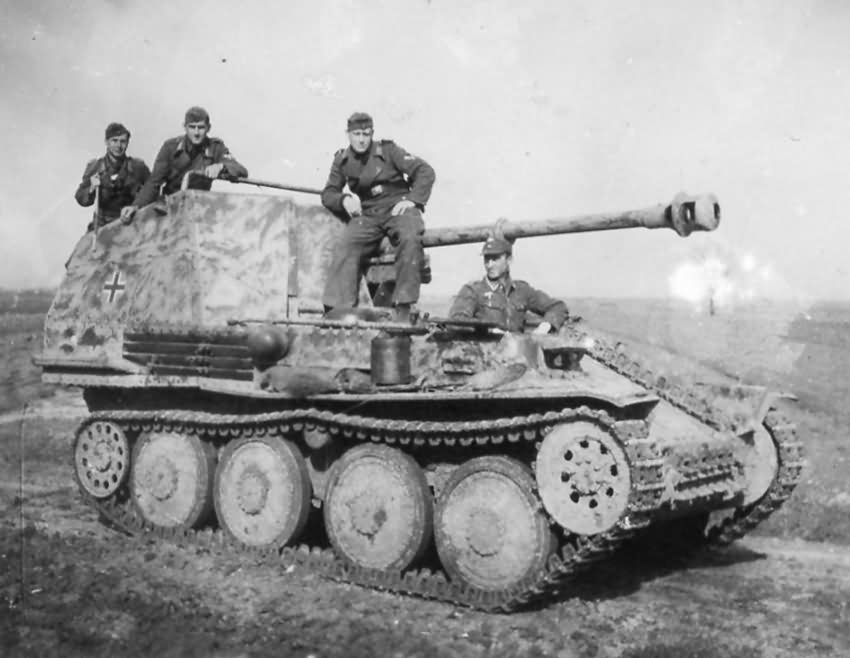
Marder Panzer
The Panzer II is the common name used for a family of German tanks used in World War II. [2] The official German designation was Panzerkampfwagen II (abbreviated PzKpfw II). [2]

Marder IID front view World War Photos
The Marder III is the name for a series of World War II German tank destroyers built on the chassis of the Panzer 38(t). The German word Marder means "marten" in English. They were in production from 1942 to 1944 and served on all fronts until the end of the war. Even in the early stages of Operation Barbarossa, the Wehrmacht already felt the need for a more mobile and more powerful anti-tank.

Marder Panzer
Als Marder II werden Panzerjäger -Selbstfahrlafetten bezeichnet, die auf dem Fahrgestell des Panzerkampfwagens II geschaffen und von der deutschen Wehrmacht im Zweiten Weltkrieg eingesetzt wurden.

Pin on Marder
The Marder I "Marten" ( Sd.Kfz. 135) was a German World War II tank destroyer, armed with a 75 mm Pak-40 anti-tank gun. Most Marder Is were built on the base of the Tracteur Blindé 37L (Lorraine), a French artillery tractor/ armoured personnel carrier of which the Germans had acquired more than three hundred after the Fall of France in 1940.

German Tank Destroyer Marder III Ausf M World War Photos
A German Marder self-propelled anti-tank gun churns across the Russian steppe as SS soldiers occupy a defensive position recently held by Red Army troops. The principal weapon with which the Germans countered enemy tanks in the opening days of the war was the 37mm Pak gun that was towed by truck or by a team of horses.
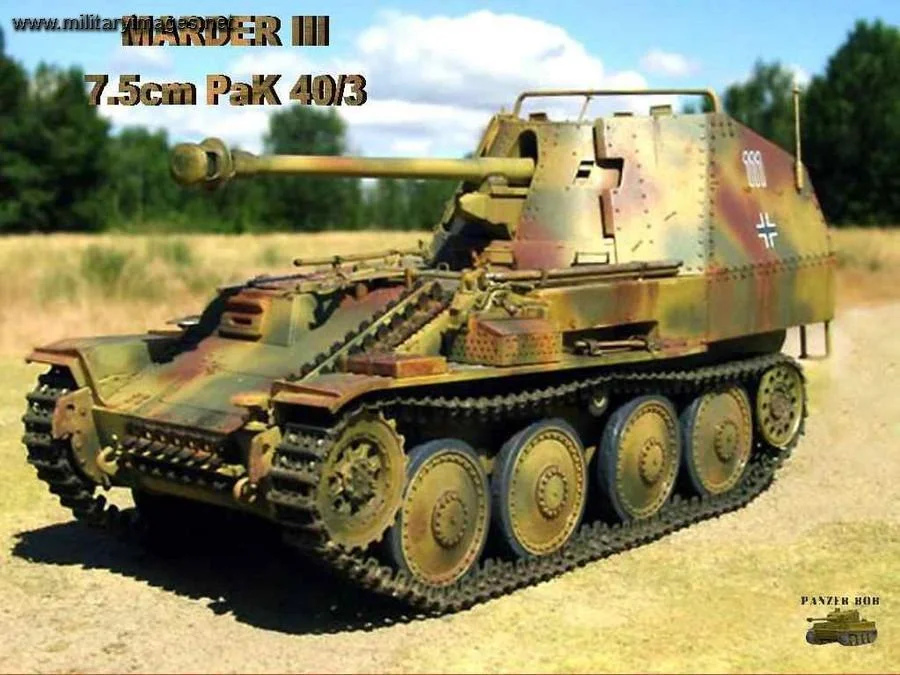
Marder III Ausf M
The Marder II ("marten" in English) was a German tank destroyer of World War II based on the Panzer II chassis. [1] There were two versions, the first mounted a modified Soviet 7.62 cm gun firing German ammunition, while the other mounted the German 7.5 cm Pak 40 gun. [2]

WWII German Marder III Tank Destroyer Photographed by John Norris WW II Tank destroyer, Ww2
The Marder II ("marten" in English) was a German tank destroyer of World War II based on the Panzer II chassis. [1] There were two versions, the first mounted a modified Soviet 7.62 cm gun firing German ammunition, while the other mounted the German 7.5 cm Pak 40 gun. [2]
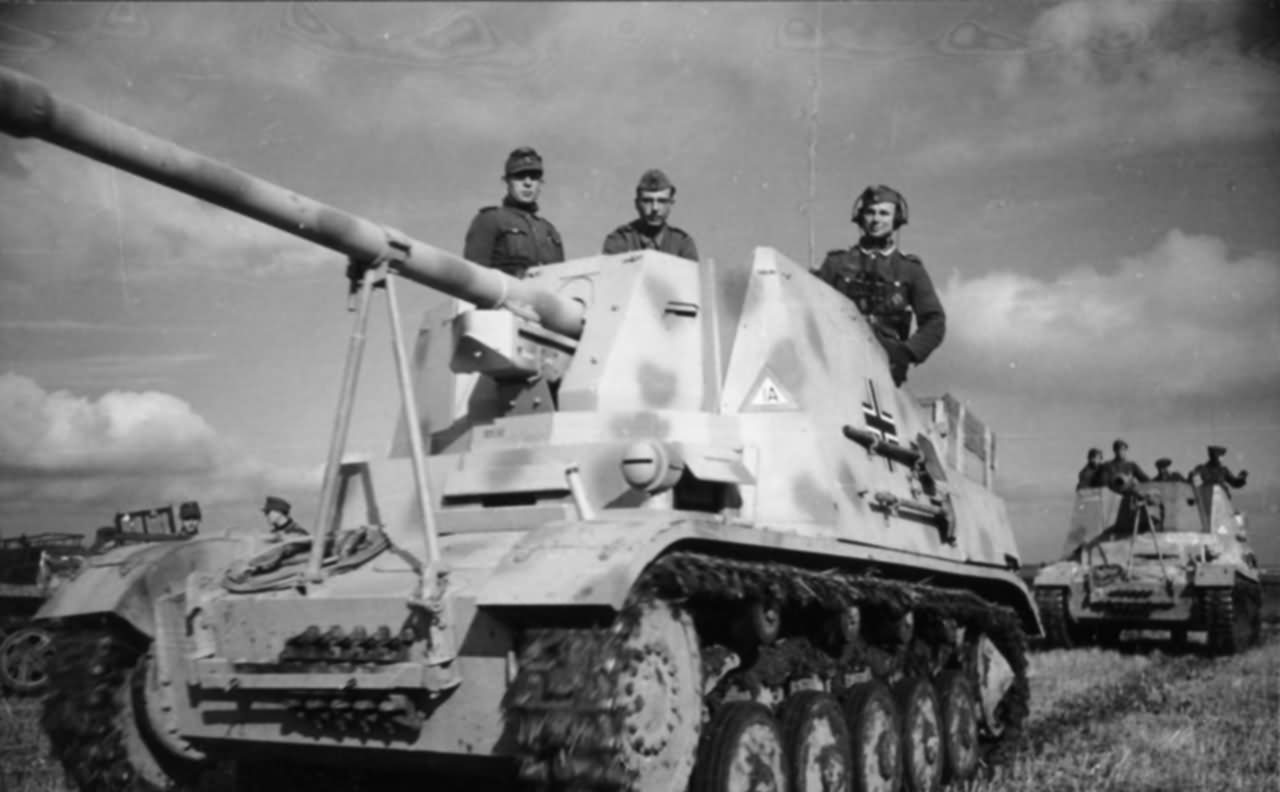
Panzerjager Marder II front view World War Photos
The Schützpanzerwagen Marder was the first modern IFV (Infantry Fighting Vehicle) of the Bundeswehr. West Germany in fact had some advance already in that type, having pioneered the Schützpanzerwagen "Lang" and "Kurz" from 1958 to provide the panzergrenadiers with a fitting replacement for the WW2 SdKfz 250 and 251.
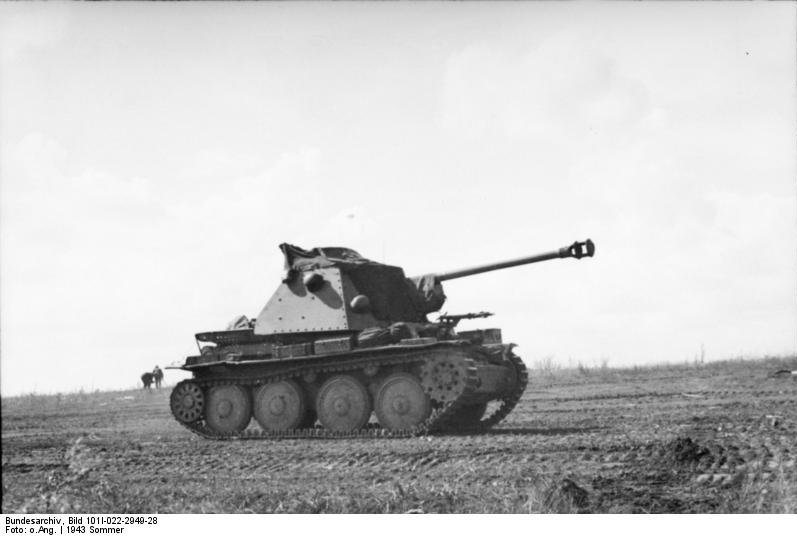
[Photo] Marder III Ausf. H tank destroyer during Battle of Kursk, Russia, summer 1943 World
The Marder II is a German tier 3 tank destroyer. Light tank destroyer developed in early 1942 based on the chassis of the outdated, but massively produced, Pz.Kpfw. II, and fitted with a powerful gun.. The Marder II was a German tank destroyer of World War II based on the Panzer II chassis. History. During the very first days of Operation.
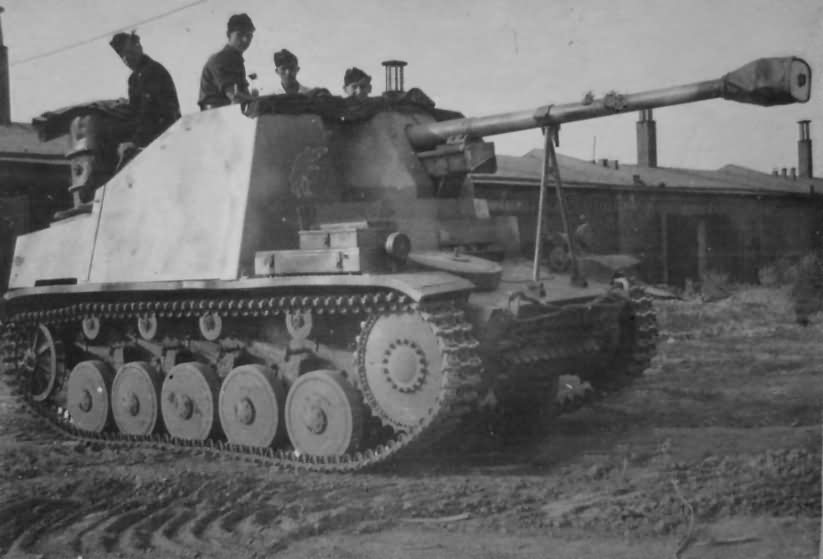
Marder II of the 3rd Panzer Division Wehrmacht World War Photos
A quick look at the new Panzer II, Wespe and Marder III kits from Battlefront and a few tips from what we learned by building them.xxxxxxxxxxxxxxx Links & su.
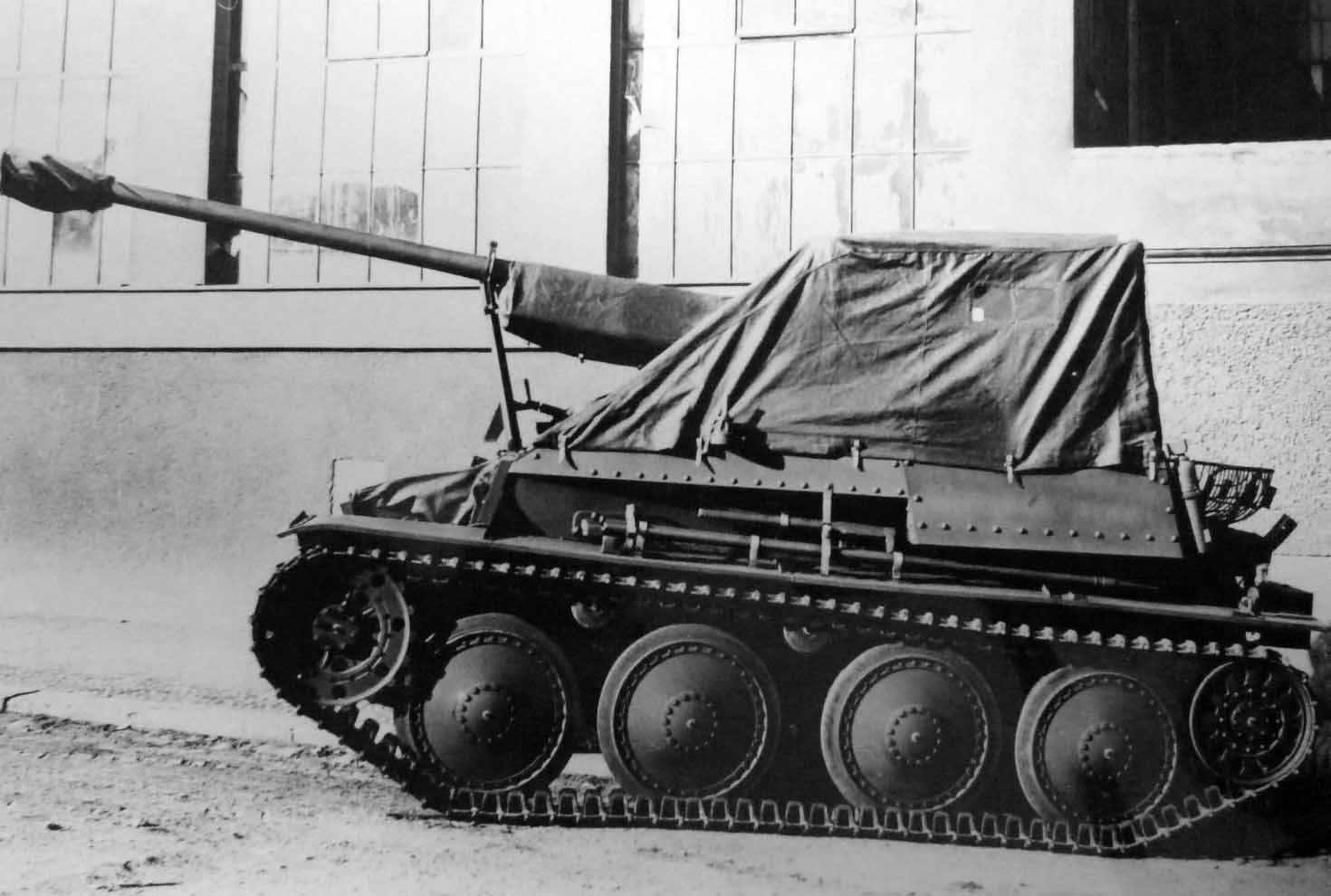
German Tank Destroyer Marder III World War Photos
The Schützenpanzer Marder 1 ( German pronunciation: [ˈʃʏt͜sn̩ˌpant͜sɐ ˈmaʁdɐ ˈaɪ̯ns]; "Schützen" carrying "Armour"-ed fighting vehicle " Marten 1") is a tracked German infantry fighting vehicle designed for use with the West German Panzergrenadiere units, mechanized infantry specialized for IFV combat.

A crew with their SdKfz 132 Marder 2 Ausf D on the battlefield Army Vehicles, Armored Vehicles
In May 1943, the name was changed to 7.5 cm PaK 40/1 auf Sfl.Lorraine-Schlepper. In August 1943, it was again changed to Pz.Jaeg. LrS fuer 7.5 cm PaK 40/1 (Sd.Kfz.135). It received the Marder I name, by which it is best known today, due to Adolf Hitler's personal suggestion made at the end of November 1943.

9th August 1942 Germans reach the first of the Russian oilfields German tanks, Tank destroyer
Even before the Second World War, the famous German tank commander Heinz Guderian had predicted the need for highly mobile self-propelled anti-tank vehicles, later known as Panzerjäger or Jagdpanzer (tank destroyer or hunter). However, in the early years of the war, beside the 4.7 cm PaK (t) (Sfl) auf Pz.Kpfw.

[Photo] Marder II tank destroyers at Kharkov, Ukraine, early 1943 World War II Database
WW2 German Tank Destroyers Panzerjäger 38 (t) für 7.62 cm PaK 36 (r) 'Marder III' (Sd.Kfz.139) By MarkoPantelic May 8, 2018 11 Comments Contents: Panzer 38 (t) Panzerjäger 38 (t) für 7.62 cm PaK 36 (r) 'Marder III' (Sd.Kfz.139) Construction Organization of the self-propelled anti-tank battalions In combat In North Africa In Russia Production

21.Luftwaffe Field Div. russia, spring 1944 (pic.1) Marder, Panzerwagen, Panzerkampfwagen
The first series of Marder vehicles was based on captured French armored vehicles. The second series of the Marder II would be produced using the Panzer II tank chassis. The first steps in the Marder II development were undertaken by the Minister of Armament, Albert Speer.